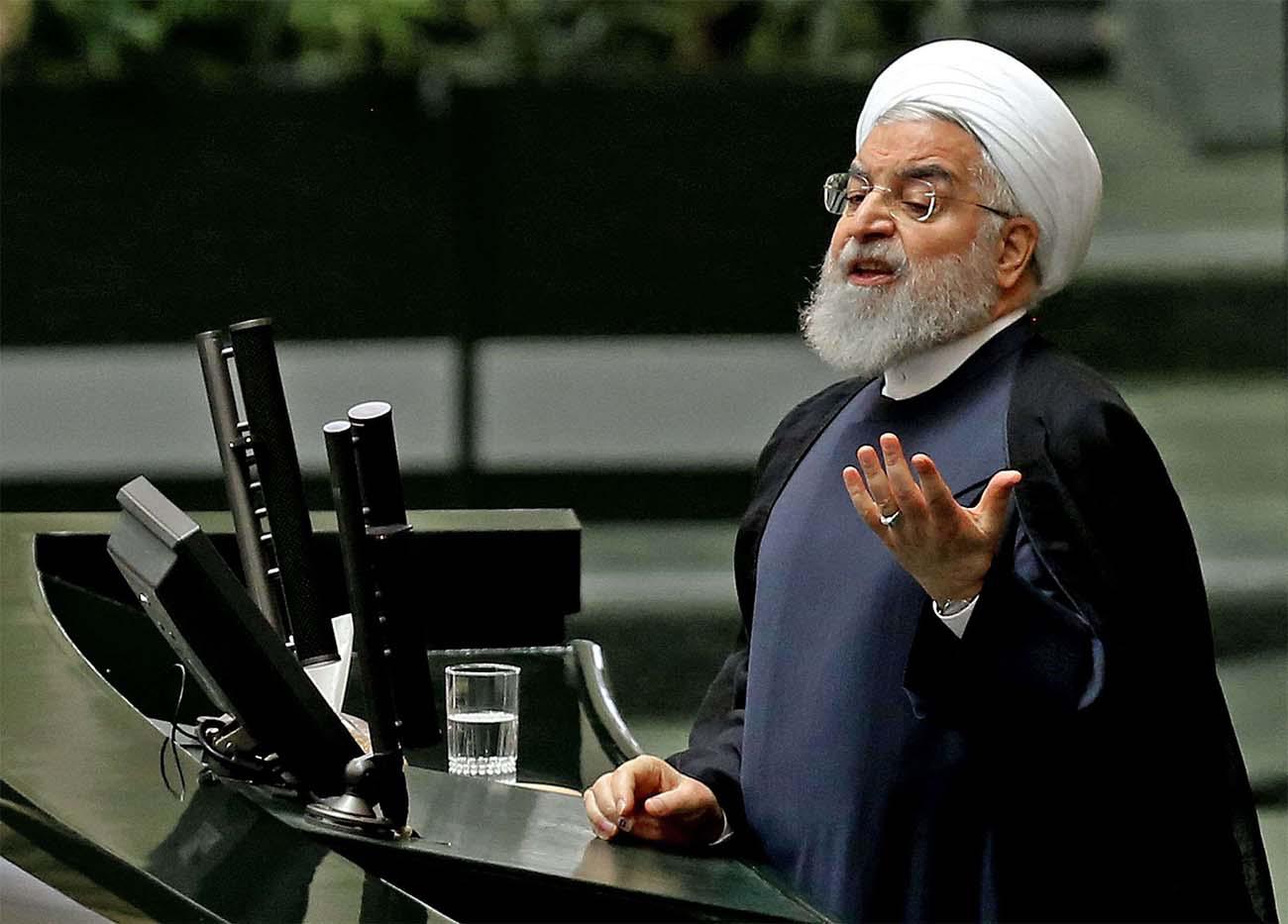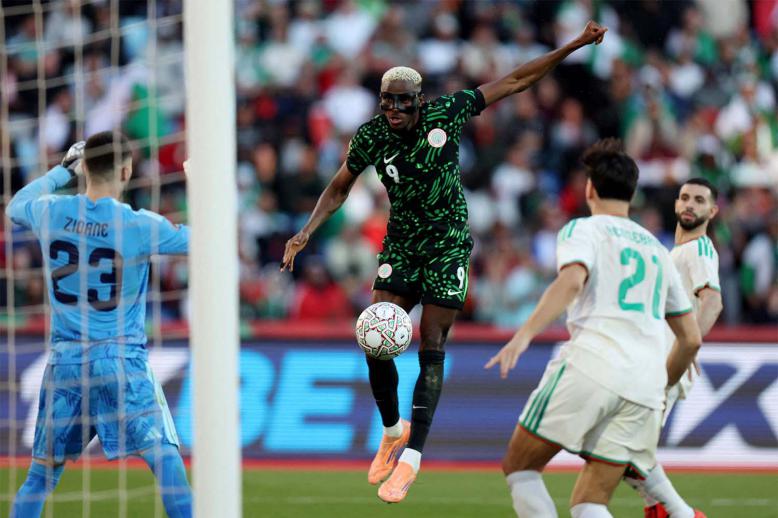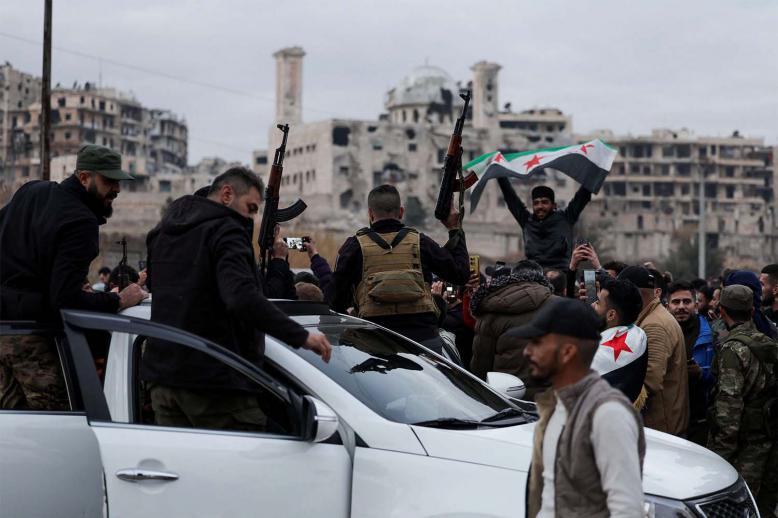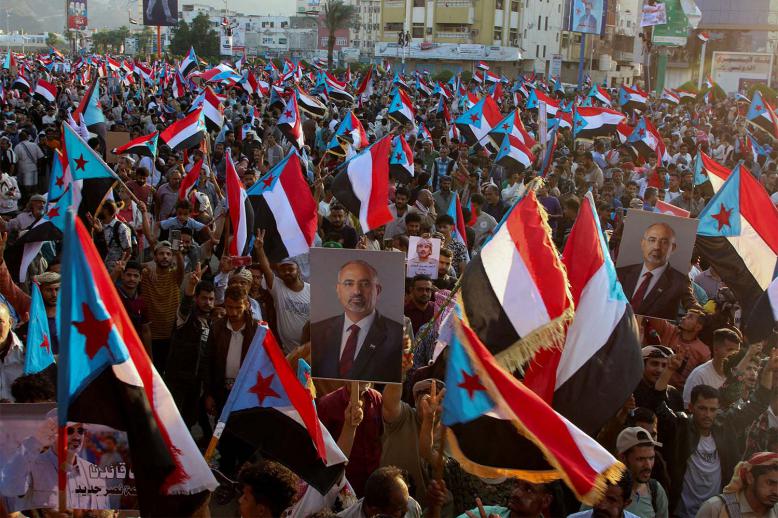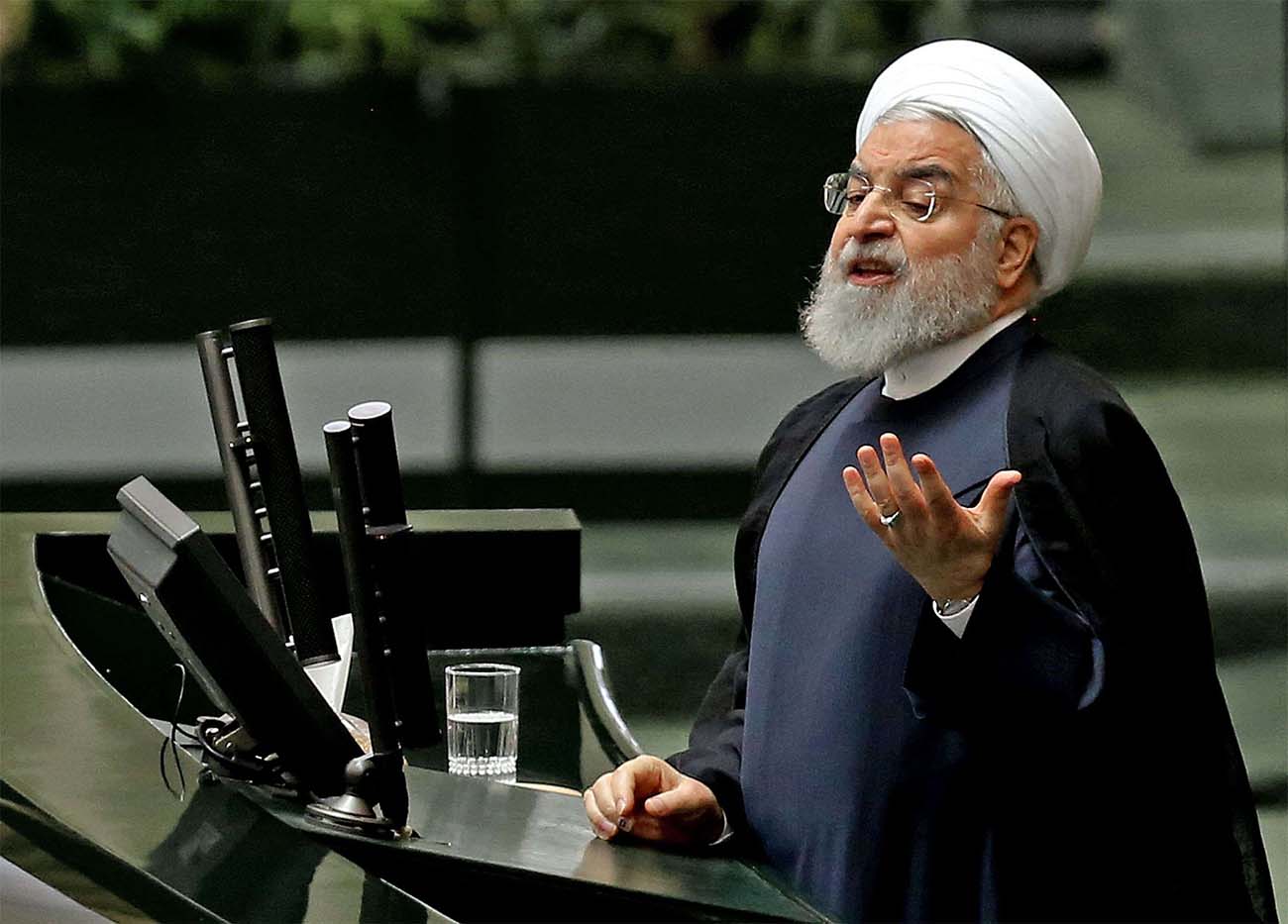US and Iran say willing to talk but ulterior motives keep big divide
ISTANBUL — The United States and Iran may have taken a step back from the brink of war but de-escalation is by no way certain, analysts said.
Speaking August 26 at the end of a G7 summit in France, which included a surprise visit by Iranian Foreign Minister Mohammad Javad Zarif, US President Donald Trump said he saw a “very good chance” for a personal meeting with Iranian President Hassan Rouhani in the coming weeks. Rouhani also indicated his willingness to meet Trump.
Both sides, however, set out conditions that appeared to be non-starters for their potential interlocutors. The Trump administration demanded indefinite restrictions on Iran’s nuclear programme, a ban on Iranian ballistic missiles and an end of Iranian support for groups around the region such as Lebanon’s Hezbollah militants and Yemen’s Huthi rebels.
Iran is calling for US sanctions to be lifted as a precondition for talks. Tehran also wants Trump to return to the 2015 international nuclear agreement that the United States abandoned last year.
Still, the stated readiness by Trump and Rouhani to iron out their differences through dialogue, coming after months of belligerent rhetoric and hostile military action with the two sides bringing down each other’s unmanned aerial vehicles in the Gulf, offered at least a theoretical chance to de-escalate the situation in top-level talks.
Rouhani and Trump are to be in New York for the UN General Assembly at the end of September, which could provide a stage for talks.
“We may be approaching an off-ramp in tensions between Iran and the US but it would be premature to talk about a breakthrough,” said Naysan Rafati, Iran analyst at the International Crisis Group. “Everything has to go right but there is a lot that can go wrong. The devil is in the details.”
Trump has overseen a “maximum pressure” campaign against Tehran with crippling economic sanctions to try to force the Iranians to accept stricter rules on their nuclear programme and missile plans. Iran responded with a mix of measures, ranging from interfering with tanker traffic in the Gulf to violating the nuclear deal and warning of more violations that would effectively end the landmark accord.
The escalation alarmed European powers that want to keep the nuclear agreement alive. They argue that keeping Iran engaged is the best way to prevent Tehran from building a nuclear weapon and to get results on Tehran’s missile programme, which is seen as a threat to other countries in the region, or Iran’s aggressive policies in regional conflicts.
As the leader of a European effort to defuse the situation, French President Emmanuel Macron used his role as the G7 host to pressure Trump. Macron invited Zarif for talks on the sidelines of the G7 summit to hammer home the message that dialogue with Iran is crucial.
Trump not only signalled his willingness to meet with Rouhani. His administration is preparing direct talks with the Iran-backed Huthi rebels in Yemen, the Wall Street Journal reported.
Trump also indicated a way to lessen the economic burden that his sanctions placed on Iran. He ruled out lifting sanctions against Tehran but said one idea would be to open a new credit line for Iran. The model he mentioned would mean countries could, in effect, pre-buy Iranian oil despite the sanctions.
Rafati said the immediate goal could be a return to the situation before May this year, when Trump ended all exceptions for countries to buy Iranian oil. That triggered a sharp rise in tensions that put the United States and Iran close to a military confrontation. Trump said in June that he stopped a US strike on Iran just minutes before it was scheduled to be carried out.
“Economic reprieve” for Iran and a return by Iran to the rules of the nuclear deal would likely have to be part of any package to defuse the situation, Rafati said.
Tehran has exceeded the limits on the stockpile of enriched uranium it was allowed to have under the agreement and has driven uranium enrichment to a degree above that laid down in the treaty. Iran said it may soon breach other rules of the accord, a step that could lead to the collapse of the deal.
Diplomatic efforts to prevent a further rise in tensions continued after the G7 summit. Iran said it was sending a delegation to France for more talks and Zarif is scheduled to travel to Moscow September 2.
Both Trump and Rouhani had to tread carefully, Rafati said. “There is a lot of concern among hardliners in Iran” about trusting any possible agreement with the United States, he said. Rouhani’s domestic critics argue that the 2015 nuclear deal never delivered the economic benefits promised by his government. “They are saying: once bitten, twice shy,” Rafati said about hardliners in Tehran.
At the same time, supporters of the “maximum pressure” strategy in Washington may be opposed to any move that could be considered giving Iran a reprieve, Rafati added.
The United States the week of August 26 imposed sanctions against two networks it says helped boost Iran’s nuclear programme and evade sanctions to benefit Tehran’s government and military.
Thomas Seibert is an Arab Weekly contributor in Istanbul.
Copyright ©2019 The Arab Weekly


